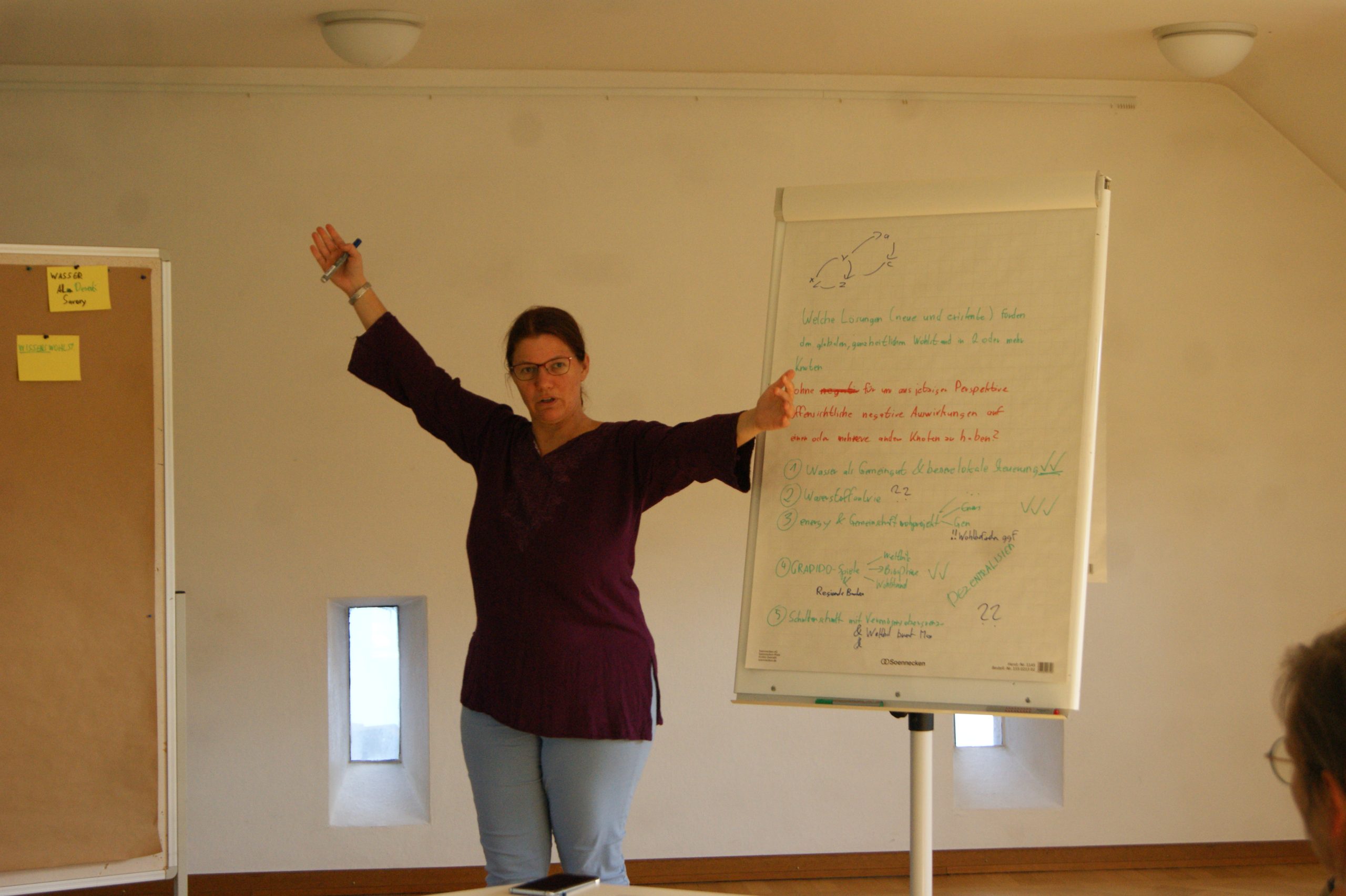How can we achieve a world without poverty?
Poverty is a major problem. But what does “poverty” actually mean? It’s not that easy to say. There are different types of poverty. For example, you can have little money (monetary poverty). Or you can feel poor because other people have more (relative poverty). There is also poverty that has nothing to do with money. Amartya Sen, a well-known thinker, has said that poverty also means not having the freedom to shape your own life.
What can we do to combat poverty?
A few years ago, I led a workshop on this question. Ten people worked intensively on the topic for three hours. We used a tool called the “world systems model”. It was developed by Tony Hodgson and helps us to understand big problems. The model shows that everything in the world is connected: Environment, economy, community and much more.
Initial findings from the workshop
In small groups, we talked about the challenges that increase poverty. It quickly became clear that poverty cannot be eradicated without genuine co-determination (for example in politics). One example is water. If people do not have access to clean water, it is difficult for them to escape poverty. And water, in turn, is linked to food, health and nature.
What happens if there is a basic income?
We also thought about what would happen if many countries introduced an unconditional basic income (UBI). That would help to solve some problems. But it’s not enough. Why? Because other problems remain: Access to clean water, fair distribution of resources and genuine co-determination of people.
Holistic prosperity instead of just “no poverty”
At the end of the workshop, we reformulated the goal: It’s not just about ending poverty. We want a world in which everyone is well off – with prosperity that is not just about money. Examples of prosperity are:
- Time prosperity: Enough time for what is important.
- Freedom of choice: The opportunity to shape your own life.
- Living space: Safe living space and access to resources such as water and food.
Solutions for a world without poverty
The workshop showed that there is no simple solution. But there are approaches that can help:
- Managing water as a common good → When water is managed locally and collectively, many people benefit. Clean water leads to better health, more stable communities and greater prosperity.
- Shared housing projects → In such projects, people live together and share resources such as living space and food. This creates cohesion and helps to reduce costs.
- New money models → We need to rethink the financial system. One example is the Gradido game, in which people learn how a different monetary system could work.
- Debt cut and asset ceilings → A global debt cut could relieve countries. Asset ceilings would help to distribute resources more fairly.
What can we do?
If we want a world without poverty, we need to take action. Let’s start on a small scale: Let’s exchange ideas with others, learn from successful community projects and consider what is possible in our own environment.
If you are also working on a better world with your organization, take a look at my Strategies for Changemakers offer. My“Possible Worlds” session is open to everyone and we can dive deeper into the question together: How can we shape change?
A world without poverty is possible – if we change our perspective on the world and act together.

